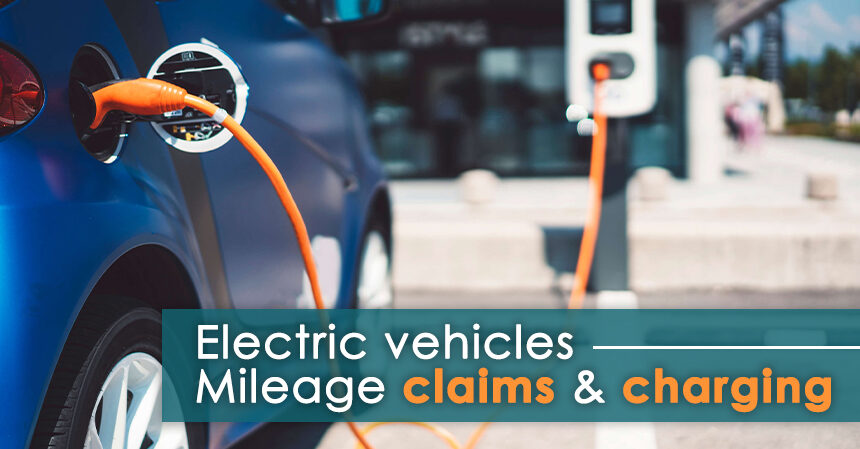Electric and low emission vehicles (EV) remain highly sought after. Despite the slight increase to the benefits in kind (BiK) tax rate to 2% this April, EVs remain a widely tax-efficient option for businesses and employees. We often get asked about the tax position on EV mileage claims and charging costs?
Claiming Mileage for employee EVs (including those under salary sacrifice arrangements)
For employees claiming mileage on their own EV usage, HMRC’s Mileage Allowance Payment (MAP) sets the rate at 45 per mile for the first 10,000 miles then 25 pence for any additional miles, with an additional 5 pence per mile for each passenger on the same business trip. This is the same as for petrol and diesel cars and designed to cover the full running cost of the vehicle.
Claiming mileage for company-owned EVs
HMRC issues Advisory Fuel Rates (AFRs) quarterly at the beginning of March, June, September and December each year, with these recommended rates being used as the standard basis for reimbursing employees for business travel in company-owned vehicles. These are designed to cover the cost of fuel, but nothing more. For fully electric vehicles, the Advisory Electric Rate (AER) is currently 8p per mile, compared with a starting band of 14p for petrol/diesel cars.
Employees charging EVs at home
Due to the difficulty in distinguishing between the cost of charging an EV and the rest of an employee’s energy bills, for practical reasons using the 8p per mile AER rate may be the best basis for an expensed business mileage claim. There could be tax and national insurance to pay where home charging costs are fully reimbursed.
Installing charging points at employees’ homes
If the employer pays to install charging points at an employee’s home for a company EV, there will be no benefit in kind, therefore it is a tax-free benefit.
Charging EVs at the workplace
If employees charge their own EVs at the workplace, they receive a tax exemption and are free of any associated benefit in kind tax – applying to both business and private journey costs. It’s also worth noting that installation costs in connection with charging points at the workplace will attract 100% capital allowances if incurred by companies before 1 April 2023.
Talk to us!
For all things to do with tax in connection with electric vehicles, our tax team are here to help. From reporting of benefits on P11Ds, to planning ahead, get in touch.
The Team
Our experienced and approachable team are on-hand to assist you, please get in touch below:

